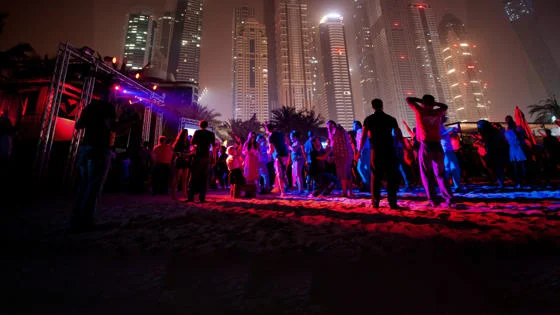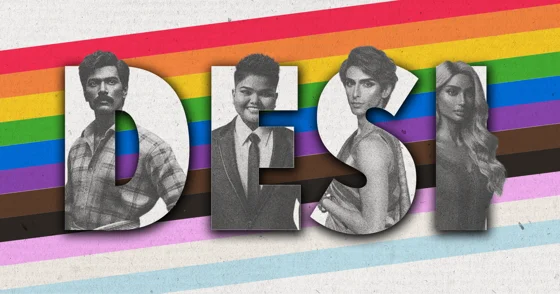The politicisation of fear: how Uganda's Anti-Homosexuality Act extends the state’s reach

Contents
A law does not need to be recorded as enforced to be dangerous.
Consider the experience of a Ugandan woman, attacked on a night out for “looking gay”. It is she – not her attacker – who ends up spending two nights in jail before being released without charge. Yet despite being innocent, on release she finds herself homeless, having been evicted for “unnatural offences”.
Or take the case of several men, arrested while voluntarily seeking HIV testing and treatment at a health clinic. They are physically and sexually harmed in pre-trial detention through a sanctioned policy of ‘'anal verification'’ (a digital rectal examination) – again under accusations of “unnatural offences” – before being released. No charges are ever laid.
Without formal charges, these individuals will never be counted in statistics. Yet they are all victims of a legal system that enforces anti-homosexuality in traumatic ways.
These are not hyperbolic anecdotes, but real-life experiences recounted by Dr SM Rodriguez, Assistant Professor of Gender, Rights and Human Rights in the Department of Gender Studies at LSE. At an LSE Research Showcase talk, Dr Rodriguez sets out how Uganda’s anti-homosexual laws were impacting LGBTQ Ugandans and why decriminalisation alone will not bring about the safety that all Ugandans deserve. Using Uganda as a case study, Dr Rodriguez highlights the dangers that can arise in society when fear is politicised, stressing that the moral panic this creates is not exceptional to Uganda.
“When we think about the enforcement of anti-gay laws, it's easy to imagine a straightforward process: someone is arrested, charged and prosecuted under the law. But in reality, these laws are doing something much larger,” Dr Rodriguez explains. “They’re not just criminalising specific acts – they are criminalising entire identities, shaping national narratives and legitimising everyday forms of discrimination.”
Enforcing state bigotry: Uganda’s Anti-Homosexuality Act
Homosexuality was first criminalised in Uganda under British colonial rule. While some nations have since repealed their anti-gay laws, state-led persecution in Uganda has intensified, with the introduction of the Anti-Homosexuality Bill in 2009, widely referred to as the “Kill the Gays Bill”. In 2023, a new Anti-Homosexuality Act was enacted, prompting widespread international condemnation, including from the UK Government, which said it was “appalled” by the law. Despite international condemnation, life for LGBTQ Ugandans remains perilous and oppressive.
While repealing the Act is clearly vital if LGBTQ individuals are to enjoy the same freedoms as other Ugandans, a bid to have it overturned failed in 2024, suggesting that the fight will be a difficult one. As the examples given by Dr Rodriguez above reveal, the “offences” it aims to prevent are rarely directly investigated or proven. This should not mean, however, that the Act should be considered draconian on paper but toothless in reality, cautions Dr Rodriguez.
“The core question is what counts as enforcement?” they explain. “Were these laws really enforced? If we measure law enforcement by convictions, the answer might be no. But if we shift our focus beyond courtrooms and prison sentences, we see a different reality – one where anti-gay laws function as tools of surveillance, punishment and societal control, without ever needing a single conviction. This challenges a common assumption – one shared across both socially conservative and liberal perspectives – that sodomy laws are unenforced or even unenforceable.”
By viewing Uganda’s anti-homosexual laws through too narrow a lens, however, we risk missing the bigger picture. "We must ask how they extend their reach beyond arrests and the courtroom? And what constitutes enforcement of sodomy legislation and thereafter decriminalisation?
“When we look at the wider impacts on those brought into the system under these laws – even if the end result was to be released without charge – we start to see how damaging they can be to the everyday lives of those who fall under their umbrella.”
From colonial dominance to homophobic nationalism
Ugandan’s sodomy laws have a twisted history, having been enacted by the British with a specific purpose in mind. “These laws were about controlling populations and enforcing Victorian-era gender and sexual norms through which indigenous peoples could be reconstructed as barbaric or deserving of control, civilisation and punishment.”
The British Empire, of course, no longer exists. Why, then, has Uganda failed to follow in the footsteps of other former colonies and repeal its anti-gay legislation? The answer, argues Dr Rodriguez, lies in the benefit these laws bring to politicians in the current context. These laws “are no longer just colonial impositions – they have been reactivated and repurposed for contemporary political, economic and moral agendas.”
In a disturbing mirror to the colonialist approach, Uganda’s current politicians are also using anti-gay laws to further their own agendas: this time “to build a national identity”, says Dr Rodriguez. This “homophobic nationalism” frames homosexuality as a form of foreign threat – a “Western import that endangers traditional values” – and is used by politicians to distract Ugandans from governance failures.
“By positioning LGBTQ people as a cultural enemy, leaders redirect public frustration away from issues like economic hardship or corruption,” Dr Rodriguez explains.
Through framing Western governments and LGBTQ-friendly NGOs as being engaged in “ideological warfare” against Uganda, politicians are “using queer visibility as a means of exerting influence over African nations”. This casting of LGBTQ Ugandans as proxies for Western influence – an influence that "threatens the moral and political fabric of the nation” – allows Ugandan leaders to frame their legal oppression of LGBTQ people as an “act of sovereignty rather than discrimination. The phobia of homophobia in this case,” continues Dr Rodriguez, “is a politicised fear, in which stopping the spread of the imagined community preserves the inviolability of the state.
“Rather than seeing homophobic nationalism as a byproduct of state control, we should recognise it as an active strategy of geopolitical positioning – one that transforms LGBTQ people into symbols of Western incursion rather than individuals with rights or agency.”
The insidious nature of anti-gay legislation
As a result of these political motivations, Uganda’s laws “don't just criminalise same-sex intimacy, they construct a moral boundary between ‘real’ Ugandans or ‘real’ Africans and those deemed corrupt, deviant or foreign. In this way, the law becomes a tool of social division, reinforcing a binary us versus them logic.”
The Anti-Homosexuality Act is also not the only legal vehicle used to repress LGBTQ Ugandans, says Dr Rodriguez. Enforcement also occurs "through proxy laws: other legal provisions that are weaponised against LGBTQ individuals without explicitly naming them’’. One such law is the Anti-Pornography Act, passed at the same time as the Anti-Homosexuality Act of 2014 but to far less international attention.
“The anti-pornography act was used to police gender expression and disproportionately targeted women and queer people,” says Dr Rodriguez. “Additionally, laws on public indecency and disorderly conduct also allow police to harass, detain and intimidate LGBTQ people under the guise of upholding social order.
“This means that even if sodomy laws were repealed, the broader architecture of anti-queer policing would still exist.”
Uganda’s anti-gay laws have permeated all of society
Removing legal penalties is not enough to bring about genuine decriminalisation, argues Dr Rodriguez. What is needed is a “dismantling of the entire system of social surveillance and moral regulation that these laws support’’.
Dr Rodriguez continues: “Anti-gay laws function in ways that are often invisible, shaping daily life without ever needing to be formally applied. Their power lies in their ability to create fear, justify discrimination and regulate behaviour through indirect means.”
Part of this power lies in the law’s framing of the individual, and not the act, as deviant. Referring to the opening bar-fight anecdote, Dr Rodriguez says: “When that bar fight occurred in the opening anecdote ... it wasn't a direct indication that she had ever actually engaged in same-sex activity – an unnatural offence. The arrest signalled that her public presence was the unnatural offence.”
In addition, simply the fact of the Act itself draws all Ugandans into its orbit, placing everyone – “landlords, employers, healthcare providers, educators, even family members” – in the position of having to risk-assess their associations.
“A doctor may refuse to treat a queer patient, not because the law compels them to refuse, but because they fear police scrutiny about the order of their priorities ... A parent may need to evict and report their child for criminal engagements,” sets out Dr Rodriguez.
“This means that even when the state is not actively policing, the law is still being enforced at every level of society. These laws extend their reach through the chilling crackdown on activism and essential services. The result – that life-saving medical care becomes inaccessible, disproportionately harming those already most vulnerable.”
Decriminalisation must be only the first step
The violence enacted on the woman in a bar also provides an illustration of one of the more indirect impacts of this legislation. “Anti-gay laws make extra-legal punishments seem acceptable,” explains Dr Rodriguez. "If the state criminalises LGBTQ life, it legitimises homophobic vigilante violence. When a queer person is attacked, their attackers can claim they were simply defending cultural values or protecting their community. Chillingly, they can launch no defence at all, as interpersonal violence becomes a common-sense response, just as criminal justice normalises the state's extreme violence.”
In this way, we see that despite sodomy laws rarely leading to conviction, they are anything but ineffective. “Their true power lies in how they reshape everyday life, embedding fear and exclusion into the societal imagination. Understanding this invisible reach is essential if we want to move beyond criminalisation and decriminalisation and towards actual safety and freedom,” Dr Rodriguez continues.
What does true justice look like?
Viewed through this wider lens, we see the repercussions of anti-gay legislation impacting far beyond the confines of the law. “We often think of decriminalisation as a simple legal process: repealing a statute, striking down a law. But if enforcement is diffuse, what does it really mean to decriminalise homosexuality?” asks Dr Rodriguez, who highlights that much of the oppression currently facing gay Ugandans is experienced outside of the courtroom and prison system.
“The law has strengthened to enact violence to which queer people are already globally acquainted. If parents disown their children, if landlords still evict queer tenants, if police still monitor health institutions, has anything truly changed once a particular law is repealed?”
It is this question that academics and activists, including Dr Rodriguez, are engaged in addressing: “We need to question what justice can look like when legal apparatuses ensure marginalisation happens through socialised policing, economic exclusion and moral surveillance.
"Challenging sodomy laws means looking at, but also beyond, the law itself. It requires us to recognise the full network of enforcement, one that includes the punishment suffered not just at the hands of the state, but also at society at large, as well as the lack of resources – recognitive and material – distributed to attend to the needs of the marginalised.’’
This means that repealing the law is just one step in the fight for equality, says Dr Rodriguez, highlighting the fact that LGBTQ individuals still face discrimination and persecution in countries that have long repealed their anti-gay legislation.
“Legal decriminalisation without social change still leaves queer people unsafe, and policy shifts don't automatically undo the harm caused by years of criminalisation and imprisonment. Decriminalisation must go further. It must be about dismantling the systems that enforce exclusion, fear and violence,” they say.
Policymakers, therefore, must focus not just on legislation but on the roots of violence and marginalisation that LGBTQ individuals face globally. This requires "building abolitionist democracies, creating multivalent infrastructures of protection that shield not only LGBTQ people from socio-economic exclusion but also the broader Ugandan public from neo-colonialism and authoritarianism’’. Dr Rodriguez emphasises that activism must focus on the structural roots of insecurity that all Ugandan people face – whether LGBTQ or not – so that society in general becomes more resilient against the seduction of scapegoating.
If these steps are not taken, even once legal change has been won and people are free from arrest, they “will not be free from fear’’.
“While a completely necessary harm reductionist measure, if we only focus on criminal legal victories, we risk missing the deeper struggle – the fight against a colonial logic that weaponises criminalisation and punishment against the moral and social order of those supposedly requiring civilising,” Dr Rodriguez concludes.
This Research Showcase was written up by Jess Winterstein, Deputy Head of Media Relations at LSE.




